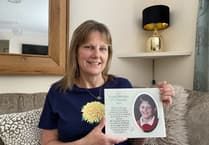I read with interest Professor Broderick’s letter (Manx Independent, April 27) regarding recent developments in the Manx language community.
He is right to point to the success of the language movement since the 1970s, and especially the Bunscoill Ghaelgagh and the strength of the language among children and young people, as well as the key role played by major figures such as Douglas Fargher and Brian Stowell.
However, I must correct some misconceptions with respect to my work and projects in which I am involved.
My current research at the University of Galway focuses on variation and change in the way Manx is spoken today – in terms of vocabulary, idiom, grammar and pronunciation – and Manx speakers’ views and feelings on these matters.
I have interviewed 28 Manx speakers of a wide variety of ages, backgrounds and opinions. As far as possible, my aim is to remain neutral, and encourage participants in the research to share their views freely, reassuring them that there are no ‘right’ or ‘wrong’ answers.
Interview and questionnaire data is to be published only in anonymized form.
The aim is to publish a book on the topic in due course, which I hope will be useful both to the Manx community and to the field of minority language revitalization more generally.
Of course, like all other fluent speakers, I have my own preferences in my private use of the language.
However, most Manx speakers seem content to get on with using the language as they wish, without attempting to impose their choices on others. Even in the classroom, many teachers are happy to say, ‘I use X, but you will also hear Y’, equipping students to deal with the variation they will encounter in real life. No language is entirely homogeneous, and Manx is no exception.
There is certainly no ‘Lewin-Teare push’ to reinstate ‘Bible Manx’, as Professor Broderick claims. The reference is presumably to the Manx Corpus (corpus.gaelg.im), a project to which Rob Teare (the Department of Education, Sport and Culture’s Manx Language Officer) and myself have contributed.
The aim of this project is to make available a wide range of Manx texts from the 17th century to the present day in an online searchable format, enabling speakers and students of Manx to explore the material and make their own informed choices about what linguistic models they wish to follow.
Mr Teare has already transcribed and included works by Fargher, Stowell and other major figures of the revival in the corpus project. We would like many more such examples to be included, but older texts have been our first priority.
Increased access to older texts in digital format, including the Bible (completed in 1772), has certainly enabled certain words, idioms and grammatical rules to be rediscovered in recent years.
Some of today’s speakers have chosen to incorporate these into their own Manx. However, there is no concerted effort to impose changes systematically, and it would be overly simplistic to postulate a straightforward division between ‘everyday Manx’ and ‘Bible Manx’.
Indeed, much of the attraction of the richly idiomatic Manx Bible translation for generations of Manx students has been precisely that it is earthy, everyday Manx to a considerable extent. This is partly a result of a conscious policy on the part of the translators and editors to make the text as accessible as possible to our ancestors, as well as a lack of pre-existing literary models beyond everyday spoken usage.
Interested readers can learn more about these matters at the upcoming free conference ‘Language and Society in the Isle of Man’ (iMuseum, Douglas, May 11-13), which will include a launch of the Manx Corpus, a keynote lecture by Mr Teare about changes in Manx in the 19th and 20th centuries, and a panel of talks comparing the revival of Manx and Cornish.
Dr Christopher Lewin
Co. Galway, Ireland
This letter was first published in the Manx Independent of May 4.
Share your views with our readers.
Write to: Opinions, Isle of Man Examiner and Manx Independent, 18 Finch Road, Douglas, IM1 2PT or email:
Don’t forget to include your name, FULL home address and a daytime phone number even if you want to be anonymous in print.
Obviously, we need to be able to verify the identity of everyone whose letter we publish.
We don’t print phone numbers or full addresses and respect anonymity if the author requests it.





Comments
This article has no comments yet. Be the first to leave a comment.